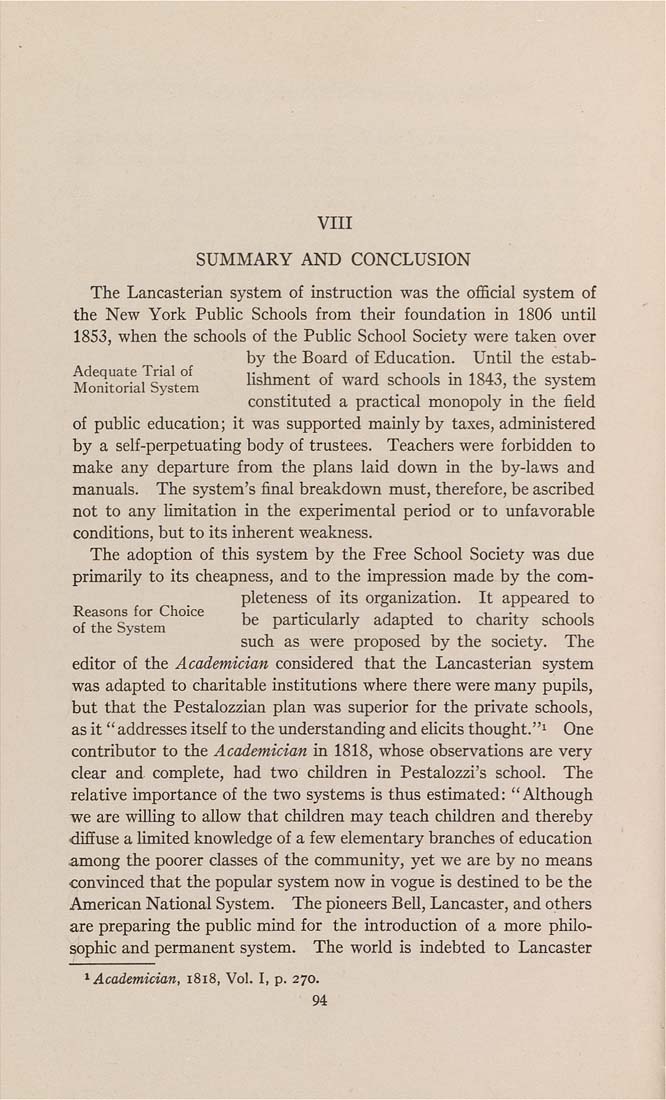VIII
SUMMARY AND CONCLUSION
The Lancasterian system of instruction was the official system of
the New York PubUc Schools from their foundation in 1806 until
1853, when the schools of the Public School Society were taken over
by the Board of Education. Until the estab-
Z'Storial^System Hshment of ward schools in 1843, the system
constituted a practical monopoly in the field
of public education; it was supported mainly by taxes, administered
by a self-perpetuating body of trustees. Teachers were forbidden to
make any departure from the plans laid down in the by-laws and
manuals. The system's final breakdown must, therefore, be ascribed
not to any limitation in the experimental period or to unfavorable
conditions, but to its inherent weakness.
The adoption of this system by the Free School Society was due
primarily to its cheapness, and to the impression made by the com¬
pleteness of its organization. It appeared to
of''the"syitem''°''''' *"= particularly adapted to charity schools
such as were proposed by the society. The
editor of the Academician considered that the Lancasterian system
was adapted to charitable institutions where there were many pupils,
but that the Pestalozzian plan was superior for the private schools,
as it "addresses itself to the understanding and elicits thought."' One
contributor to the Academician in 1818, whose observations are very
clear and complete, had two children in Pestalozzi's school. The
relative importance of the two systems is thus estimated: "Although
we are wiUing to allow that children may teach chfldren and thereby
diffuse a limited knowledge of a few elementary branches of education
among the poorer classes of the community, yet we are by no means
convinced that the popular system now in vogue is destined to be the
American National System. The pioneers BeU, Lancaster, and others
are preparing the pubhc mind for the introduction of a more philo¬
sophic and permanent system. The world is indebted to Lancaster
^Academician, l8i8. Vol. I, p. 270.
94
|








